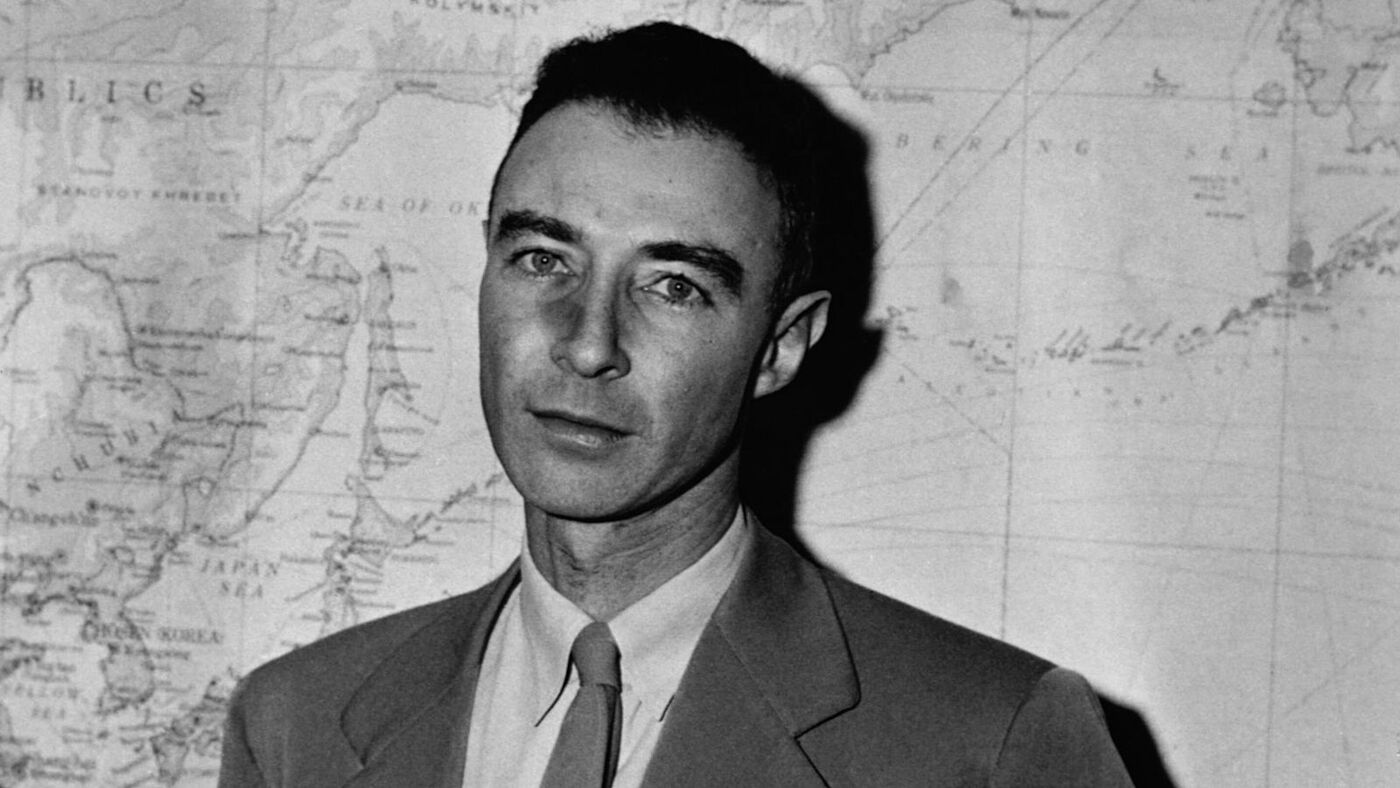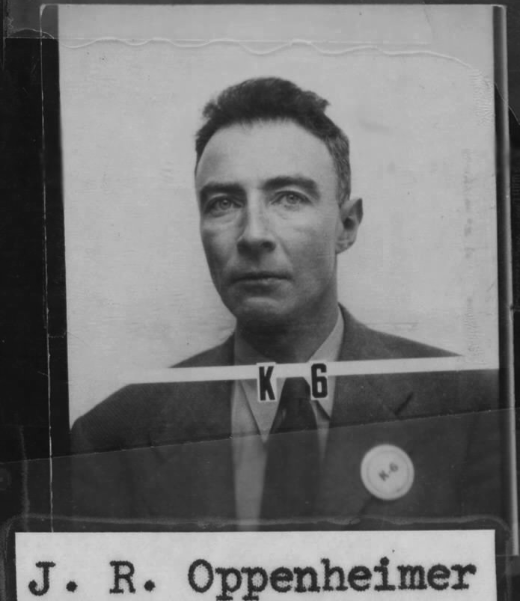There’s a name that echoes through the annals of scientific history, a name that symbolizes brilliance, innovation, and sacrifice—Julius S. Oppenheimer. He wasn’t just a scientist; he was a visionary who changed the world forever. His contributions to science, particularly in the field of nuclear physics, have left an indelible mark on humanity. If you’re curious about the man behind the atomic age, this article dives deep into his life, achievements, and legacy.
Let’s be real—Julius Oppenheimer wasn’t your typical scientist. He had a mind that worked on a different level, and his journey wasn’t always smooth. From his early days as a curious young boy to becoming the "Father of the Atomic Bomb," Oppenheimer’s story is one of triumphs and controversies. But what made him tick? What drove him to push boundaries and redefine science?
So, buckle up, because we’re about to take you on a wild ride through the life and times of Julius S. Oppenheimer. This ain’t just another biography; it’s a deep dive into the mind of a genius who shaped the modern world. Let’s get started!
Read also:Whorsquos Josh Brolinrsquos Mom The Untold Story You Need To Know
Biography: Who Was Julius S. Oppenheimer?
Before we dive into the nitty-gritty details, let’s take a moment to understand who Julius Oppenheimer really was. Born on April 22, 1904, in New York City, Oppenheimer grew up in a wealthy family with a passion for learning. His parents encouraged his curiosity, and by the time he was in his teens, he was already excelling in chemistry and physics.
Here’s a quick snapshot of his life:
| Full Name | Julius Robert Oppenheimer |
|---|---|
| Born | April 22, 1904, New York City |
| Died | February 18, 1967, Princeton, New Jersey |
| Profession | Physicist, Professor |
| Education | Harvard University, University of Cambridge, University of Göttingen |
| Claim to Fame | Director of the Manhattan Project, "Father of the Atomic Bomb" |
Oppenheimer wasn’t just a physicist; he was a philosopher, a poet, and a thinker. His interests spanned beyond science, and he was known for his deep appreciation of literature and art. This diverse background made him a unique figure in the scientific community.
Early Life and Education: The Making of a Genius
Julius Oppenheimer’s journey began in the bustling streets of New York City. Growing up in a wealthy family, he had access to the best education and resources. His parents, Julius and Ella Oppenheimer, were supportive of his intellectual pursuits, and by the age of 11, he was already showing a keen interest in chemistry.
He attended the Ethical Culture Fieldston School, where he excelled in both academics and extracurricular activities. Oppenheimer’s teachers quickly recognized his potential, and they encouraged him to pursue his passions. By the time he graduated, he had already made a name for himself as a brilliant young mind.
Oppenheimer’s education didn’t stop there. He went on to study at Harvard University, where he majored in chemistry. But his love for physics soon took over, and he decided to pursue a career in theoretical physics. After Harvard, he traveled to Europe, studying at the University of Cambridge and the University of Göttingen, where he earned his Ph.D. in 1927.
Read also:Rubb Map The Ultimate Guide To Revolutionizing Your Navigation Experience
Key Achievements During His Early Years
- Graduated summa cum laude from Harvard University.
- Published his first scientific paper at the age of 22.
- Earned his Ph.D. in physics from the University of Göttingen.
- Began teaching at the University of California, Berkeley, and Caltech.
Oppenheimer’s early years laid the foundation for his future success. His education and experiences prepared him for the challenges he would face later in life.
The Manhattan Project: Julius Oppenheimer’s Defining Moment
Now, let’s talk about the elephant in the room—the Manhattan Project. Oppenheimer’s role in this historic endeavor is what truly cemented his legacy. Appointed as the scientific director of the project, he was tasked with leading a team of brilliant minds to develop the world’s first atomic bomb.
The project was top secret, and Oppenheimer faced numerous challenges along the way. He had to manage a team of scientists from different backgrounds, all working towards a common goal. It wasn’t easy, but Oppenheimer’s leadership skills and scientific expertise made him the perfect candidate for the job.
Challenges Faced During the Manhattan Project
- Managing a diverse team of scientists with conflicting personalities.
- Overcoming technical and logistical hurdles.
- Dealing with the immense pressure of the project’s secrecy.
Despite the challenges, Oppenheimer and his team succeeded in developing the atomic bomb. The first successful test, code-named Trinity, took place on July 16, 1945, in the New Mexico desert. It was a moment that changed the world forever.
Oppenheimer’s Contributions to Science
While the Manhattan Project is undoubtedly Oppenheimer’s most famous achievement, it’s not the only one. Throughout his career, he made significant contributions to the field of theoretical physics. His work on quantum mechanics and nuclear physics has had a lasting impact on the scientific community.
Oppenheimer was also a prolific writer and speaker. He authored numerous scientific papers and gave lectures on a wide range of topics. His ability to communicate complex ideas in a way that was accessible to a broader audience made him a beloved figure in the scientific world.
Notable Contributions to Science
- Developed the concept of the "Oppenheimer-Phillips process," a theory in nuclear physics.
- Contributed to the understanding of black holes and neutron stars.
- Advocated for international control of nuclear weapons.
Oppenheimer’s legacy in science extends far beyond the Manhattan Project. His work has inspired generations of scientists and continues to influence the field today.
Personal Life: The Man Behind the Genius
Oppenheimer’s personal life was as complex as his scientific work. He was married to Kitty Harrison, and the couple had two children. However, his personal life was not without its challenges. Oppenheimer struggled with depression and anxiety, which were exacerbated by the immense pressure of his work.
Despite these challenges, Oppenheimer remained committed to his family and his work. He was known for his charm and charisma, and he had a large circle of friends and colleagues who admired him. However, his involvement in the Manhattan Project and subsequent political controversies took a toll on his personal life.
Key Moments in Oppenheimer’s Personal Life
- Married Kitty Harrison in 1940.
- Had two children, Peter and Katherine.
- Struggled with depression and anxiety throughout his life.
Oppenheimer’s personal life was a testament to his humanity. He was not just a scientist; he was a man with passions, fears, and dreams.
Political Controversies: The Fallout of Genius
Oppenheimer’s involvement in the Manhattan Project brought him both fame and controversy. After the war, he became an advocate for international control of nuclear weapons, a stance that put him at odds with many in the U.S. government. His vocal opposition to the development of the hydrogen bomb further alienated him from powerful figures in Washington.
In 1954, Oppenheimer’s security clearance was revoked after a series of hearings that questioned his loyalty and judgment. The hearings were widely criticized as a witch hunt, and they left a lasting mark on Oppenheimer’s career and reputation. Despite this setback, Oppenheimer remained a respected figure in the scientific community.
Key Political Controversies
- Opposed the development of the hydrogen bomb.
- Security clearance revoked in 1954.
- Became a symbol of the dangers of McCarthyism.
Oppenheimer’s political controversies highlight the complex relationship between science and politics. His experiences serve as a reminder of the importance of ethical considerations in scientific research.
Legacy: The Lasting Impact of Julius S. Oppenheimer
Oppenheimer’s legacy extends far beyond the Manhattan Project. He was a pioneer in the field of theoretical physics, and his work has had a lasting impact on the scientific community. His advocacy for international control of nuclear weapons also made him a champion of peace and disarmament.
Today, Oppenheimer is remembered as a brilliant scientist and a complex human being. His contributions to science and his commitment to ethical principles continue to inspire generations of scientists and thinkers. His story is a testament to the power of human ingenuity and the importance of responsible stewardship of knowledge.
How Oppenheimer’s Legacy Lives On
- Influenced generations of scientists and thinkers.
- Advocated for ethical considerations in scientific research.
- Remains a symbol of the dangers of political persecution.
Oppenheimer’s legacy is a reminder that science is not just about discovery; it’s about responsibility and accountability.
Lessons from Oppenheimer’s Life
What can we learn from the life and times of Julius S. Oppenheimer? First and foremost, we can learn the importance of curiosity and intellectual pursuit. Oppenheimer’s passion for learning and discovery drove him to achieve greatness.
We can also learn the importance of ethical considerations in scientific research. Oppenheimer’s advocacy for international control of nuclear weapons serves as a reminder of the responsibility that comes with scientific advancement.
Finally, we can learn the importance of perseverance in the face of adversity. Oppenheimer faced numerous challenges throughout his life, but he remained committed to his principles and his work.
Key Lessons from Oppenheimer’s Life
- Curiosity and intellectual pursuit are key to success.
- Scientific research must be guided by ethical considerations.
- Perseverance is essential in the face of adversity.
Oppenheimer’s life is a testament to the power of human potential and the importance of responsible stewardship of knowledge.
Conclusion: The Genius That Changed the World
Julius S. Oppenheimer was more than just a scientist; he was a visionary who changed the world forever. His contributions to science, his advocacy for ethical principles, and his commitment to peace and disarmament continue to inspire generations of scientists and thinkers.
So, what’s the takeaway? If you’re passionate about learning and discovery, if you believe in the power of science to change the world, then Julius Oppenheimer’s story is for you. Take a moment to reflect on his life and legacy, and consider how you can make a difference in your own corner of the world.
And remember, folks, knowledge is power, but with great power comes great responsibility. So, let’s follow in Oppenheimer’s footsteps and use our knowledge for the betterment of humanity.
Now, it’s your turn. Leave a comment, share this article, or check out our other content. Together, we can keep the spirit of discovery alive!
Table of Contents
- Biography: Who Was Julius S. Oppenheimer?
- Early Life and Education: The Making of a Genius
- The Manhattan Project: Julius Oppenheimer’s Defining Moment
- Oppenheimer’s Contributions to Science
- Personal Life: The Man Behind the Genius
- Political Controversies: The Fallout of Genius
- Legacy: The Lasting Impact of Julius S. Oppenheimer
- Lessons from Oppenheimer’s Life
- Conclusion: The Genius That Changed the World



